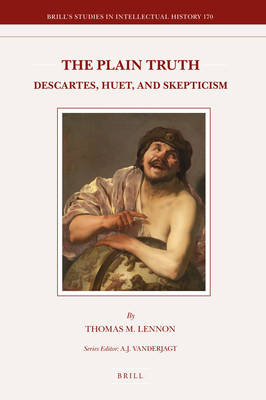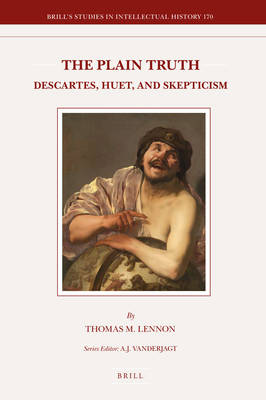
Je cadeautjes zeker op tijd in huis hebben voor de feestdagen? Kom langs in onze winkels en vind het perfecte geschenk!
- Afhalen na 1 uur in een winkel met voorraad
- Gratis thuislevering in België vanaf € 30
- Ruim aanbod met 7 miljoen producten
Je cadeautjes zeker op tijd in huis hebben voor de feestdagen? Kom langs in onze winkels en vind het perfecte geschenk!
- Afhalen na 1 uur in een winkel met voorraad
- Gratis thuislevering in België vanaf € 30
- Ruim aanbod met 7 miljoen producten
Zoeken
Omschrijving
The skeptic Pierre-Daniel Huet's Censura philosophiae cartesianae (1689) is the most comprehensive, unrelenting and devastating critique of Descartes ever. It incisively captures all the issues that now interest readers of Descartes: the method of doubt, the cogito, clarity and distinctness as criteria of truth, the circularity of the Meditations, proofs of God's existence, etc. Naturally, the work provoked great controversy among the Cartesians, who were implicated in various capacities--Nicolas Malebranche as the occasional cause of the publication, and Pierre-Sylvain Regis as the chief defender of the Cartesian camp. What emerges in this study of the controversy is a heroic, defensible Descartes. He possesses hitherto unappreciated answers to the criticisms that have bedeviled his philosophy from his time to ours.
Specificaties
Betrokkenen
- Auteur(s):
- Uitgeverij:
Inhoud
- Aantal bladzijden:
- 255
- Taal:
- Engels
- Reeks:
- Reeksnummer:
- nr. 170
Eigenschappen
- Productcode (EAN):
- 9789004171152
- Verschijningsdatum:
- 16/10/2008
- Uitvoering:
- Hardcover
- Formaat:
- Genaaid
- Afmetingen:
- 165 mm x 246 mm
- Gewicht:
- 589 g

Alleen bij Standaard Boekhandel
+ 491 punten op je klantenkaart van Standaard Boekhandel
Beoordelingen
We publiceren alleen reviews die voldoen aan de voorwaarden voor reviews. Bekijk onze voorwaarden voor reviews.









